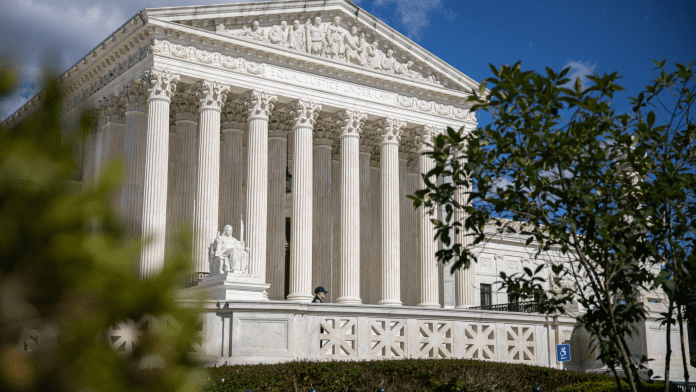The U.S. Supreme Court has ruled that a group of fuel producers can proceed with a legal challenge to California’s vehicle emissions standards, reversing a lower court decision that previously dismissed the case for lack of standing. In a 7-2 decision, the court sided with Valero Energy’s subsidiary, Diamond Alternative Energy, and fuel industry trade groups, marking a significant development in the legal battle over state-level authority to impose stricter environmental regulations.
The lawsuit targets a 2022 Environmental Protection Agency (EPA) waiver that permits California to enforce its own tailpipe emissions rules and electric vehicle mandates through 2025. That waiver, granted under the Biden administration, reinstated California’s authority after it was rescinded in 2019 during President Donald Trump’s first term. Under the Clean Air Act, California is the only state permitted to set its own vehicle emission standards, provided it receives EPA approval. Historically, the state has received over 100 such waivers.
The court’s decision does not address the merits of California’s regulations but allows the case to be returned to the lower courts for further litigation. Fuel producers argue that the waiver exceeds the EPA’s statutory authority and harms their business by reducing demand for liquid fuels. The justices found that the plaintiffs had sufficient grounds to bring the case, rejecting the D.C. Circuit Court’s earlier conclusion that the challengers failed to show direct harm.
The ruling reflects the Supreme Court’s ongoing skepticism toward the broad regulatory powers of federal agencies, particularly the EPA. In recent years, the court has scaled back the agency’s authority to address environmental issues, including its jurisdiction over power plant emissions and water pollution.
California officials have pledged to defend their regulatory authority, stating that Congress intended for the state to have the power to implement stronger standards to protect public health and combat climate change. Meanwhile, the EPA’s more recent waiver for California’s plan to phase out gasoline-only vehicle sales by 2035 has also come under scrutiny from both political and legal perspectives. That initiative was nullified by President Trump earlier this month, triggering a new legal challenge from California and 10 other states.



